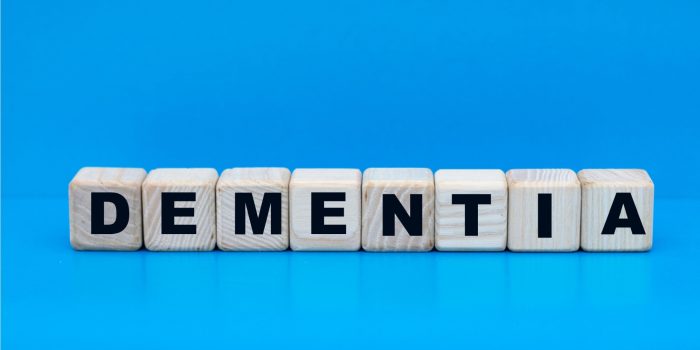
It is never too late to take action against dementia
August 16th, 202445% of dementia cases can be prevented by taking action, for example, seeing sense and loving your heart – treating failing eyesight and preventing high cholesterol. In the Lancet Commissions Report, experts have identified those two new dementia risks.
It is never too late to take action against dementia
By 2050, it’s predicted that cases will have tripled, and 153 million people will be living with dementia. Global health costs are estimated to be over 1 trillion dollars. There is currently no cure for the condition, but the latest findings have proven that it is never too late to take action against dementia.
Cases of dementia are rapidly increasing
Cases of dementia are rapidly increasing. Dementia occurs when a disease like Alzheimer’s, damages nerve cells in the brain that lead to confusion and memory loss. It is not an inevitable part of ageing, we all get forgetful and confused at times, but genetics and risk factors increase the chance of a person losing themselves to dementia from as young as 20-30 years old.
Our life expectancy is extending
Life expectancy is extending, people are living longer and suffering from many different forms of ailments and diseases.There are different forms of dementia the most heard of are Alzheimer’s disease, Parkinson’s disease, vascular dementia and Huntington’s disease. Others are – frontotemporal dementia, mixed dementia, dementia with Lewy bodies, and alcohol-related brain damage.
Find out more here.
Experts have confirmed that many variables are linked to increased dementia risk. They have also created a list of what countries worldwide should be doing to take action against dementia.
There are 14 listed variables linked to increased dementia risk.
- Social isolation.
- Air pollution.
- Visual loss.
- Less education.
- Hearing loss.
- High cholesterol.
- Depression.
- Brain injury.
- Physical inactivity.
- Diabetes.
- Smoking.
- Hypertension.
- Obesity.
- Excessive alcohol.
What can countries do to take action against dementia?
- Make hearing aids available to anyone with hearing loss
- Educate people about dementia and the risks
- Support and encourage people to stop smoking
- Motivate people to exercise
- Advise people on how to reduce high blood pressure
- Take steps to lower a person’s cholesterol level
- Treat obesity
- Tackle problem drinking
- Encourage socialising
- Screening for eyesight issues
- Reduce exposure to air pollution
We have a wide range of products that can help take action against dementia, such as:
- Aldosterone (AlsoPro Liquid) – aids balance and hearing.
- Aniracetam (AniPro) – improves memory.
- Retina peptide (Visoluten) – normalises the function of the retina.
- 5HTP (5-hydroxytryptophan) – helps with depression.
- Vesugen Sublingual Drops – normalises the function of the blood vessels.
- Metformin (MetPro) – lowers blood pressure.
- GCB70PRO (Green Coffee Bean Extract) – for natural weight loss.
- Picamilone (PicPro) – destresses and stimulates.
- NACPro (N-acetyl Cysteine – NAC) – a powerful antioxidant and detoxification agent.
It’s important to note…
Professor Charles Marshall, from Queen Mary University in London explained, “We should be careful not to imply that people with dementia could have avoided it if they made different lifestyle choices.” He added that most of an individual’s risk of developing dementia is out of their control.
Building awareness
Professor Marshall makes a valid point. However, with a cure for dementia nowhere on the horizon, any action against dementia is vital. It is important that sufferers don’t blame themselves for something they may not have a lot of control over. As with many ailments, even the healthiest of people can suffer from health issues and disease.
Building awareness about the action you can take is key but dementia is not inevitable. Samantha Benham-Hermetz from Alzheimer’s Research UK explained that many people think of dementia as something that happens to people later in life but dementia is not an inevitable part of ageing. People shouldn’t live in fear presuming that they will develop the life-changing condition.
Who knows what the future holds? We live in hope that one day there may be a cure but for now, it’s never too late to take action against dementia.
Getting help for dementia sufferers and their carers
There are many ways to get help for dementia sufferers, including charities, voluntary organisations, local authorities and resources. In some countries, social service departments can offer health and social care for sufferers and carers. They can do home visits, there are day centres, respite care, support groups, counselling and other services.
Making local police stations aware of a dementia sufferer’s condition is recommended, especially if a sufferer has a tendency to wander off. Another helpful idea is to make sure that the person carries a form of identity in their purse, wallet or bag with details of who to contact if they get found and need help. Also, it would be recommended to list any other health issues and medication that the person is suffering from.
Helpful information
The National Institute of Ageing (NIH) conducts broad scientific research to understand the nature of ageing and to extend healthy, active years of life. They are the primary agency supporting and conducting Alzheimer’s disease and related dementia research. Find out more here.
References
- https://www.dementiauk.org/information-and-support/types-of-dementia/
- https://www.bbc.co.uk/news/articles/c84jdxd4x1ro
- https://www.ucl.ac.uk/news/2024/jul/nearly-half-dementia-cases-could-be-prevented-or-delayed-tackling-14-risk-factors#:~:text=Because%20of%20the%20rapidly%20ageing,dementia%20in%20low%2Dincome%20countries.
- https://www.alzheimers.org.uk/get-involved/donate??utm_source=google&utm_medium=paid&utm_campaign=57201_fg9_pur_bauppc_&utm_content=_dynamic_n/a_n/a_&SourceCode=DMC2425PPC&sc=DMC2425PPC&utm_id=1426972031&utm_source_platform=g&utm_creative_format=__&utm_marketing_tactic=58644533920_b_dementia%20charity_&alzsoc_ad_id=650434879082___&sc=DMC2023PPC&utm_source=google&utm_medium=cpc&utm_campaign=causeppc&utm_content=searchads&gad_source=1&gclid=Cj0KCQjwzva1BhD3ARIsADQuPnVq7J6DyKjBT7mvB1t0OpTVZ45StDP2CKV0mgIMBCV0PDYRZzhgRFEaAkKEEALw_wcB&gclsrc=aw.ds






